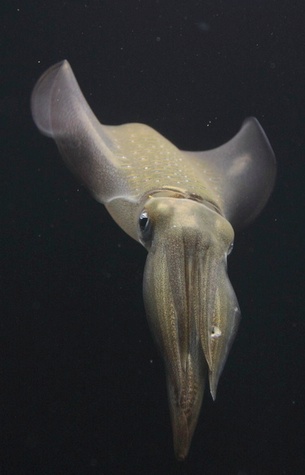This is tragic. A unique site where the giant cuttlefish migrates and breeds is under threat by the construction of a desalination plant that would render the local waters unsupportable to cuttlefish life. This must be stopped!
There is a petition: sign it.
(via Cuttlefish, of course)
(Also on Sb)


